
Mary Shelley, Connie Willis, Margaret Atwood, Octavia E. Butler, Madeline L’Engle, Lois McMaster Bujold, Joanna Russ, Ursula K. Le Guin, Hiromu Arakawa
While hundreds of women published science fiction stories in the 1950s and earlier, it wasn’t until the 1960s—with its second-wave feminism (the first wave focused on suffrage and legal gender equality) and the sense that science fiction was a literature of ideas—that a large influx of female authors appeared on the scene.
It’s impossible to talk about female-written science fiction as a cohesive genre because, like their testosteroney counterparts, female authors write about a wildly diverse array of subjects in their own unique way and voice.
Despite that, I’m including this list because most other lists of science-fiction books tend to be “White and Male heavy,” and trumpeting the achievements of female authors should help balance that out a little bit.
The 23 Best Science Fiction Books by Female Authors
A Wrinkle in Time was rejected by at least 26 publishers, because it was, in L’Engle’s words, “too different,” and “because it deals overtly with the problem of evil, and it was really difficult for children, and was it a children’s or an adult’s book, anyhow?”
The book has been in print continuously since its publication in 1962, so apparently it wasn’t too difficult for children. However, it has been too challenging for the more religious adults: it was on the American Library Association’s list of the 100 Most Frequently Challenged Books of 1990–2000 at number 23, due to the book’s references to witches and crystal balls, the claim that it “challenges religious beliefs,” and the listing of Jesus “with the names of great artists, philosophers, scientists, and religious leaders.”
Armageddon Cometh is the third book in the oddly-named Alien Species Intervention #6609 series, and has the freakiest cover in this list.
Under the guidance of Netty, Abby concocts her plans to abduct the wildlife at the Big Cat Sanctuary in Sarasota. She enlists the help of the handsome Italian yacht captain, Cobby, and his son Kane. Abby is forced to expose the changes to her body, including her hidden wings.
Author and biologist Julie E. Czerneda has a passionate cult following who can’t get enough of her books, especially her humor and excellent treatment of aliens.
They are the last survivors of their race, beings who live on and communicate through energy, who are capable of assuming the shape of any other species. When their youngest member is assigned to a world considered safe to explore, she is captured by the natives. To escape, she must violate the most important rule of her kind, and reveal the existence of her species to a fellow prisoner—a human being. Now her race is in danger of extinction, for even if the human does not betray her, the Enemy who has long searched for her people may finally discover their location….
This Hugo winner was cited as one of the top 50 science fiction novels of all time by Locus magazine (who hands out a prestigious award every year that’s just a little less recognized than the Hugo or Nebula).
Often described as an excellent novel that just happens to take place on a space station, Downbelow Station is filled with realistic characters under incredible amounts of stress, living on a vulnerable but supremely important space station in the middle of a war.
Downbelow Station is one of Cherryh’s Union-Alliance novels. While separate and complete in themselves, they are part of a much larger tapestry—a future history spanning 5,000 years of human civilization.
“Cherryh tantalizes our minds…captures our hearts and involves us completely…a consistently thoughtful and entertaining writer.”
—Publisher’s Weekly
It’s been argued that Frankenstein; or, The Modern Prometheus is the first science fiction novel. Shelley published it anonymously in 1818, and 500 copies were printed.
It wasn’t until 1831 that the “popular” version was sold (which is probably what you’ve read). Shelley edited the book significantly, bowing to pressure to make the book more conservative. Many scholars prefer the 1818 version, claiming it holds true to Shelley’s original spirit.
This isn’t a novel: it’s the wildly popular manga by Japanese artist and writer Hiromu Arakawa. In addition to being action-packed, it also focuses heavily on social problems, including the consequences of guerrilla warfare, the treatment of orphans, and the concept of equivalent exchange—to obtain something new, one must pay with something of the equal value.
After their mother’s death, two brothers learn alchemy in order to research human transmutation—a forbidden taboo in which one attempts to create or modify a human being. Their attempt to bring back their mother fails and results in the loss of one brother’s left leg and the other brother’s entire body. They spend much of the series searching for the legendary catalyst called the Philosopher’s Stone, a powerful object which would allow them to recover their bodies.
Kindred involves time travel, so while being technically science fiction, it’s often shelved under ”literature” or “African-american literature,” due to the protagonist shuttling back into a pre-Civil War Maryland plantation. Butler herself called it ”a kind of grim fantasy.”
Octavia E. Butler is a multiple-recipient of both the Hugo and Nebula awards and one of the best-known female writers in the field. In 1995, she became the first science fiction writer to receive the MacArthur Fellowship, nicknamed the Genius Grant.
Even after writing many of her books, Nalo Hopkinson hit a rough patch. She had to stop writing for six years due to a serious illness that prevented her from working. Severe anemia, caused by fibroids as well as a vitamin D deficiency, led to financial difficulties and ultimately homelessness for two years prior to being hired by UC Riverside in 2011.
It’s Carnival time and the Caribbean-colonized planet of Toussaint is celebrating with music, dance, and pageantry. Masked “Midnight Robbers” waylay revelers with brandished weapons and spellbinding words. To young Tan-Tan, the Robber Queen is simply a favorite costume to wear at the festival—until her power-corrupted father commits an unforgivable crime.
“Hopkinson take[s] potentially downbeat material and compel[s] the reader’s attention with vigorous narrative, vividly eloquent prose, and forms of magic which may actually be SF.”
-Locus magazine
Rogue Genesis is the first book in the Shimmer in the Dark series, Ceri London’s debut novel, and the single ebook-only entry on this list. It’s been described as an epic, universal, telepathic, psychokinetic, electromagnetic, space-time warping, worm-holing, militaristic adventure, so it’s probably really boring.
In the passing of seconds on Earth, Major Niall Kearey has witnessed the birth and death of generations on Astereal. His mind shortcuts light years to visit a fantastical world of floating sky cities populated by telepaths.
Karen Joy Fowler is best known as the author of the best-selling novel The Jane Austen Book Club that was made into a movie of the same name.
Sarah Canary, Fowler’s debut novel, involves a group of people alienated by nineteenth century America experiencing a peculiar kind of first contact. One character is Chinese American, another putatively mentally ill, a third a feminist, and lastly Sarah herself.
When black-cloaked Sarah Canary wanders into a railway camp in the Washington territories in 1873, Chin Ah Kin is ordered by his uncle to escort “the ugliest woman he could imagine” away. Far away. But Chin soon becomes the follower. In the first of many such instances, they are separated, both resurfacing some days later at an insane asylum. Chin has run afoul of the law and Sarah has been committed for observation. Their escape from the asylum in the company of another inmate sets into motion a series of adventures and misadventures that are at once hilarious, deeply moving, and downright terrifying.
Shadow Over Avalon is a complex re-telling of the Arthurian legend, with a technologically advanced underwater civilization and primitive surface world.
As with several other books on this list, there’s a mix of fantasy and science fiction here. As goofy as science-fiction King Arthur sounds, this book’s reviews are filled with accolades of great characters and tons of surprises.
Shards of Honor is commonly considered the first book of the popular Vorkosigan Saga, a long-running space opera.
It’s unique in that the book takes place before the main character of the series, Miles Vorkosigan, is even born.
Lois McMaster Bujold is one of the most acclaimed writers in science fiction, having won four Hugo Awards for best novel, matching Robert A. Heinlein’s record.
Re: Colonised Planet 5, Shikasta (or, as it’s more commonly known, just Shikasta) is a 1979 science fiction novel by British Nobel Prize in Literature-winner Doris Lessing, and is the first book in her five-book Canopus in Argos series.
Shikasta is the history of the planet Shikasta (Earth) under the influence of three galactic empires, Canopus, Sirius, and their mutual enemy, Puttiora.
It draws on the Old Testament and is influenced by spiritual and mystical themes in Sufism, an Islamic belief system in which Lessing had taken an interest in the mid-1960s.
Starshine, the first book in the Aurora Rising series, smoothly weaves together multiple story lines with intrigue, murder, adventure and even a bit of romance.
The year is 2322. Humanity has expanded into the stars, inhabiting over 100 worlds across a third of the galaxy. Though thriving as never before, they have discovered neither alien life nor the key to utopia. Earth struggles to retain authority over far-flung planets and free-wheeling corporations while an uneasy armistice with a breakaway federation hangs by a thread as the former rebels rise in wealth and power.
Synners is the only cyberpunk book on this list, and it’s a doozy.
Synners are synthesizers—not machines, but people. They take images from the brains of performers, and turn them into a form that can be packaged, sold, and consumed. This book is set in a world where new technology spawns new crime before it hits the streets. The line between technology and humanity is hopelessly slim; the human mind and the external landscape have fused to the point where any encounter with reality is incidental. This cyberpunk classic is from one of the founders and mainstays of the movement.
Author Pat Cadigan’s characters generally concern themselves with the blurring the line between reality and perception by making the human mind a real, explorable place.
This is the book that the excellent movie Children of Men is based on. Set in England in 2021, it centers on the results of mass infertility. James describes a United Kingdom that is steadily depopulating and focuses on a small group of resisters who do not share the disillusionment of the masses.
P.D. James (aka Phyllis Dorothy James, Baroness James of Holland Park, OBE, FRSA, FRSL) is the only life peer in the House of Lords on this list.
This whole list could easily be one big Le Guin love-fest.
She’s won the Hugo Award, Nebula Award, Locus Award, and World Fantasy Award, each more than once, but she wasn’t always successful. From 1951 to 1961 she wrote five novels, which publishers rejected because they seemed inaccessible (The Dispossessed isn’t one of those five).
Shevek, a brilliant physicist, decides to take action. He will seek answers, question the unquestionable, and attempt to tear down the walls of hatred that have isolated his planet of anarchists from the rest of the civilized universe. To do this dangerous task will mean giving up his family and possibly his life. Shevek must make the unprecedented journey to the utopian mother planet, Anarres, to challenge the complex structures of life and living, and ignite the fires of change.
Written in 1970 and published in 1975, The Female Man is a feminist novel that combines utopian fiction and satire.
In the book, the character Joanna calls herself the “female man” because she believes that she must forget her identity as a woman in order to be respected.
The novel follows the lives of four women living in parallel worlds that differ in time and place. When they cross over to each other’s worlds, their different views on gender roles startle each other’s preexisting notions of womanhood. In the end, their encounters influence them to evaluate their lives and shape their ideas of what it means to be a woman.
Offred is a Handmaid in the Republic of Gilead. She may leave the home of the Commander and his wife once a day to walk to food markets whose signs are now pictures instead of words because women are no longer allowed to read. She must lie on her back once a month and pray that the Commander makes her pregnant, because in an age of declining births, Offred and the other Handmaids are only valued if their ovaries are viable.
Funny, unexpected, horrifying, and altogether convincing, The Handmaid’s Tale is at once scathing satire, dire warning, and tour de force.
Like all great dystopian stories, The Hunger Games features a society gone bad that attacks the good guy (or gal in this instance).
Some critics have railed against the book’s brutality, but teenagers have always loved stories where other teens die violent, blood-soaked deaths (see: every horror movie ever made).
Le Guin is a wonderful anomaly, a writer with grand philosophical attitudes who can communicate these attitudes while still writing a gripping tale. The Left Hand of Darkness examines sexless androgyny in a fascinating way (and this is from a guy that loves exploding spaceships). In a way, this androgyny feels entirely alien, since our language has “he” and “she” but no human-specific pronoun for “it” or “unknown.”
Ned Henry is badly in need of a rest. He’s been shuttling between the 21st century and the 1940s searching for a Victorian atrocity called the bishop’s bird stump. It’s part of a project to restore the famed Coventry Cathedral, destroyed in a Nazi air raid over a hundred years earlier.
But then Verity Kindle, a fellow time traveler, inadvertently brings back something from the past. Now Ned must jump back to the Victorian era to help Verity put things right—not only to save the project but to prevent altering history itself.
Up the Walls of the World explores the possibility that telepathy and other psychic phenomena are real. It sympathetically describes an attempt to invade the Earth by beings with advanced telepathic abilities from the planet Tyree.
It considers the subject of sentience in different life forms inhabiting widely different environments: in computers and in a vast sentient inhabitant of deep space formed of a network of widely spaced nodes. It is Sheldon’s skill to be able to write convincingly of the experience of beings in all of these settings.
Alice Sheldon was most notable for breaking down the barriers between writing perceived as inherently “male” or “female” — it was not publicly known until 1977 that James Tiptree, Jr. was a woman. She was inducted by the Science Fiction Hall of Fame in 2012.
[mc4wp_form]
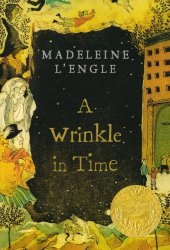







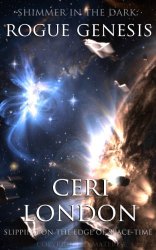

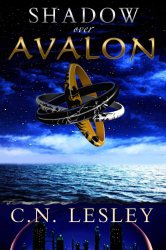




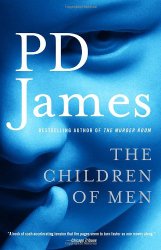


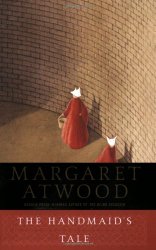
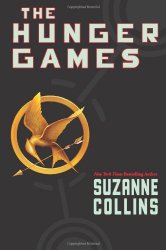
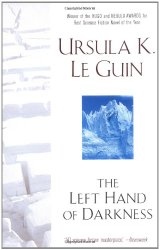
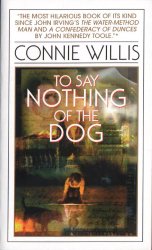

wot! no sherri s tepper? ‘Grass’? ‘The Gate to Women’s Country’? shame on you!
Agreed. Also, no Kate Wilhelm, Zenna Henderson, Anne McCaffrey, Marge Piercy and many more. But, if you limit the list to 23 and 4 of them are current, you have to leave out a lot, especially when 2 of the slots went to Ursula K. Le Guin (well-deserved, but, still…).
Sheri S Tepper IS James Tiptree, look it up
Um…no. Sheri Tepper and Alice Sheldon (James Tiptree) were born 14 years apart in different parts of the US. Absolutely not the same person.
Sorry, Ian, you’ve confused Sherri Tepper with Alice Sheldon. It’s okay, I’ve made similar kinds of mistakes myself.
I agree heartily. Sheri S.Tepper is missing from this list….any number of her amazing books could be here. I have read many of books in this list and I am really disappointed that she is not near the top.
I am humbled by the inclusion of Starshine at #14 amongst so many revered science fiction authors, and you have my sincere thanks. I hope to continue to live up to this standard with future books as well.
Many thanks,
G. S. Jennsen
I’m sure you will!
This is both street smart and intgelielnt.
Thank you. Amazing company and I’m honoured to be included!
So very glad you included Julie Czerneda!!! A true talent in this genre! Check out her fantasy as well.
I like the article, but do have to raise my eyebrows at the first sentence… call me skeptical, but I would have to SEE a list of at least 200 pre-1960 women sci-fi authors to really get on board with your opening statement. (Plus, I’d like to see Gertrude Friedberg represented on the list!)
To be honest, I’m surprised to see ‘The Hunger Games’ on this list, especially one place before ‘The Left Hand of Darkness’, since Hunger Games has the same premise as ‘Battle Royale’, only that it steers the plot into a rebel situation thing in the later books.
I’m glad to see Octavia E. Butler on the list, though. 🙂
Why not “women”? Why “female authors”? You’re reducing people to their biological parts.
Don’t forget the Duology series by M.D. James!
JULIAN MAY ! The Many-Colored Land. The Saga of Pliocene Exile and Galactic Milieu Series.
One of my favourite authors of all time, I started reading the Many Coloured Land the year it was published, I used to scan the book stores for her next work, I even enjoyed her collaborative work including Black Trillium ….. miss her writing
Dear publisher my name is venkatesh working as a librarian in jain a cambridge school hyderabad i want purchase some fiction books for above listed to our school library what is prosess kindly send the details.
Hi Venkatesh.
I’m not a publisher, but you want to purchase any books, click on the cover or link and that’ll send you to amazon.
Pleased to see newer writers as well as established writers included here. Oh and C.N.Lesley’s, Shadow over Avalon has to be my latest favourite out of nine of the above that I’ve read. Halfway through the follow on story to this which is even better in my opinion.
Also given me a couple more ideas thanks.
Highly debatable. A better title is 23 best Sci Fi books by Liberal Female Authors. Notable overlooks include Anne McCaffery. MZB, Anne Rice, Connie Willis and Doris Lessing a Nobel Prize Winner.
I missed that Willis and Lessing were on the list but I could easily recommend other books that I could place on this list.
I’m looking for a female author from Mentor Ohio that wrote some great books about a woman that fell into a lake & when she came back up she was in another time…..
Also, no Nicola Griffith?
That isn’t a picture of Hiromu Arakawa; that’s Romi Park, who did the voice of Edward Elric in the animes. There are very few pictures of Hiromu Arakawa, but two are here: http://fma.wikia.com/wiki/Hiromu_Arakawa
Thanks! I’ll make the change.
A minor editorial change that would ease people’s feelings:
Instead of “The 23 Best Science Fiction Books by…”, try “23 of the Best Science Fiction Books by Female Authors” (or ‘Women Authors’, to satisfy everyone here!).
Not only do I agree with the many “But what abouts” (Tepper, Zimmer Bradley, McCafferty are all authors of books I’d put ahead of “The Hunger Games”), but I am also inclined to disagree regarding which book of a particular author shows her best work.
Mind you, it’s an impossible task, attempting to satisfy anyone with a list such as this. It can only come down to a matter of opinion, and in the end Dan Livingston’s opinion is always right, because he owns the website. [Wanna be right, too? Start your own website!]
An addition to my comment– these are the best books in English– women writing in French, German, Spanish, Russian, Portuguese, etc. are excluded unless their works have been translated.
An interesting list, I agree that 23 of the best is more appropriate than The 23 Best.
I do however challenge the initial assertion that it wasn’t until the 60s that large numbers of women writers appeared. There were several hundred published in the magazines between the mid 30s and late 50s. One of the issues with SF is that these pioneers are written out of history. There has not been a single trend in sf or fantasy that wasn’t part led, preempted or shared by women writers.
What about Tanith Lee?
“Women as Demons: The Male Perception of Women through Space and Time” 1989
– You are my sunshine
– Discovered country
– The Thaw
etc.
I do prefer her short fiction to longer forms but she has written many books, she was a very prolific writer. I didn’t realize until today that she died this year. Such an original writer.
https://en.wikipedia.org/wiki/Tanith_Lee#Personal_life_and_death
No Melissa Scott? No Nancy Kress? CJ Cherryh?
@ RoughAcres – C.J. Cherryh is listed – “Downbelow Station.” I love it, although I find I re-read “Cyteen” every few years and it never gets old.
Thanks you so much for including Shadow Over Avalon. I am beyond thrilled.
C.N.Lesley
Ancillary Justice should be on this list
https://en.wikipedia.org/wiki/Ancillary_Justice
Absolutely!
Andre Norton? The first science fiction book I ever read, in 5th grade, was her “Galactic Derelict”, and I’ve been hooked ever since.
Norton should be at the top of any sci fi author list. That said I am glad to see Cherryh made it on this one. I love C.J.
Please me! Has anyone read a short sci-fi story about a woman who alters her body and/or to let a “present” occupy her body so that could leap about in space without a ship or space? Never finished this book of short stories and it has been haunting me for years!
Hello, just wanted the time to say I admired the amount of valuable advice your articles and site offers. I would like to cite your work on UnitedBlackBooks.org, we are blog and headshop that offers Buy african american books. Thanks!
That’s nice of you to say, and of course you can cite anything you want. Good luck!
Love the list – how about Katherine Kurtz and her Deryni series?
Yes! I’ve read everything she’s written, including the Adept & Templar books.
Though I’m not taken with many of her other novels, I wish Elizabeth Moon’s Remnant Population was on the list.
Zenna Henderson and the ‘people series’ was/is my favorite..
Try Jane Rogers’ book ‘The testament of Jessie Lamb’. Arthur C Clarke award 2012. It goes right there for me! She’s also written some mind-bending short stories, but you’ll have to search to find them (‘Body tourist’ is my favourite)
shelley deserves inclusion certainly…groundbreaking novel. one of my favorites growing up was the space olympics by a.m.lightner. her other books are also enjoyable. i have enjoyed the several nancy farmer books i have read. alice shelton is good. margaret atwood is good. several andre norton and ursula leguin books were good. i did not like any other female sf writers i have read to the point where i hesitate to even try them anymore.
Lois forever! Also loved(it’s a keeper) CS Friedman – “This Alien Shore”; agree re Ann Leckie, Anne McCaffrey (discovered her in high school, what a revelation it was), Tanith Lee and Melissa Scott. Although Sharon Lee writes with her (male) partner, the Liaden books are brilliant (another fan of Georgette Heyer, like Lois); Thanks for this – has given me some new authors to research.
My favorite book(s) of all time is the Lilith’s Brood series by Octavia Butler. I’d definitely choose that over Kindred. Exquisite creation of a nurturing human/alien relationship, highly developed anthropology here
.
Another favorite is Darkchild by Sydney van Scyoc, but that might be considered fantasy more than science. It has an “integrating the shadow” theme like Ursula LeGuin’s beautiful and meaningful “A Wizard of Earthsea.”
I prefer books of deep characterization and inner exploration rather than an action/adventure focus
Can I really be the only Barbara Hambly fan?!?! Her Darwath Trilogy was great, as is her Benjamin January series (ok, it’s not scifi, but I love ’em anyway!). The James Asher Vampire series is excellent!
I love Barbara Hambly’s writing too. I wish she would write more sci-fi! Not sure how easy it is to get hold of her books here in the UK
Astral Fall by Jessica Mae Stover belongs here
Best newer scifi I’ve read in a while
Awesome. Thanks for the recommendation.
What about NK Jemison?? Not seeing her on this list makes me quite skeptical of the whole thing. The Fifth Season trilogy was the best thing I’ve read in a long time.
I believe that book came out after this list was published.
How about Jessica Mae Stover’s Astral Fall
Ursula K. Le Guine also invented the Ansible transmitter.
This is an amazing site!
Thank you. I may have found some new writers to love from this article.